Franz Kafka’s Prague was a city of contrasts, a place that both nurtured and haunted the renowned author. Born and raised in the historic Jewish Quarter, Kafka’s world was a labyrinth of winding streets and vibrant cultures, which would later seep into the absurdist and existential themes of his iconic works. From the bustling cafes where he mingled with German-Jewish intellectuals to the shadows of isolation that permeated the city, Kafka’s Prague was a complex tapestry that wove itself into the fabric of his literary genius. Uncovering the deeply personal connections between Kafka and his beloved Prague reveals a world that’s…
Good To Know
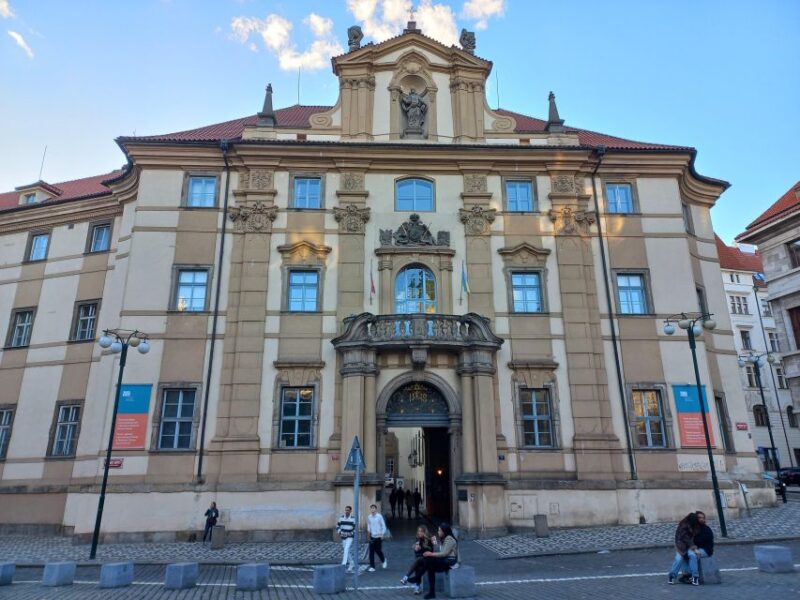
- Kafka’s birthplace and childhood in Prague’s historic Old Town shaped his literary style and themes of isolation and alienation in his works.
- The city’s labyrinthine streets and bureaucratic structures inspired Kafka’s absurdist settings and depictions of individuals struggling against an indifferent world.
- Guided tours of Kafka’s haunts, including his residences and the Jewish Quarter, provide insight into his life, family, and literary connections.
- The Jewish Quarter’s synagogues, winding alleys, and intellectual atmosphere deeply influenced Kafka’s worldview and the themes explored in his narratives.
- Commemorating the 100th anniversary of Kafka’s death in 2024 offers an opportunity to immerse visitors in his legacy and celebrate his enduring impact on 20th-century literature.
Kafka’s Birthplace and Childhood
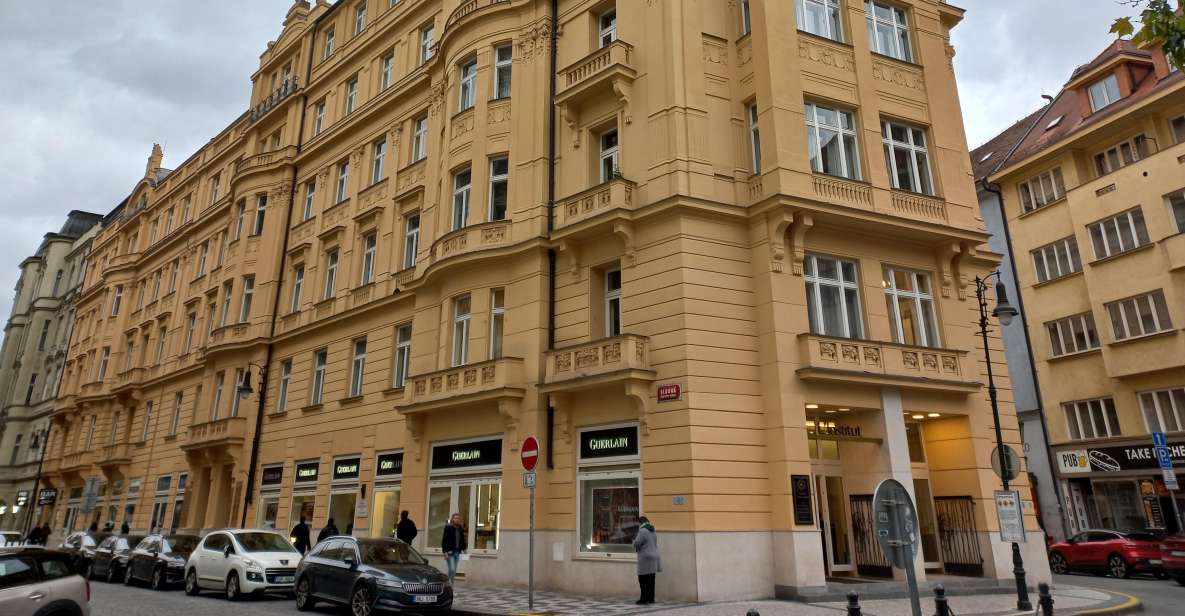
Franz Kafka was born in 1883 in a modest apartment in Old Town Prague. He spent his early years in this historic city, which would later become the backdrop for many of his famous works.
Kafka’s birthplace, located on the bustling Freigasse (now Kaprova Street), was a lively hub where his father ran a haberdashery shop. As a child, Kafka would have been immersed in the vibrant culture and architecture of Prague, experiences that likely influenced his distinctive literary style.
Though his upbringing wasn’t without its challenges, Kafka’s formative years in Prague’s Old Town laid the groundwork for his transformation into one of the 20th century’s most acclaimed and enigmatic writers.
You can also read our reviews of more tours and experiences in Prague.
Kafkaesque Influences on His Writing
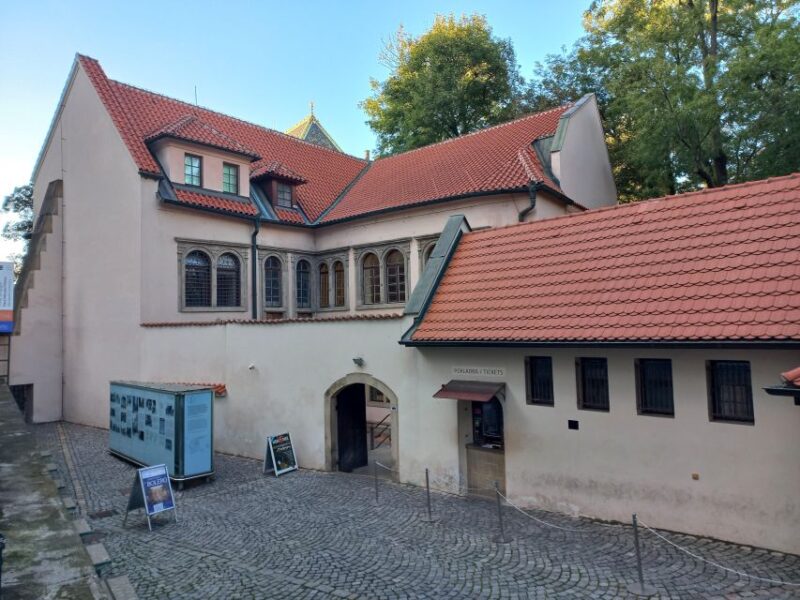
The sights, sounds, and energy of Prague’s Old Town profoundly shaped Kafka’s writing, imbuing his works with a distinct Kafkaesque quality. The labyrinthine streets, towering cathedrals, and bustling crowds of his hometown inspired a sense of disorientation and alienation that permeated his writing. Kafka’s use of absurdist settings, bureaucratic nightmares, and the individual’s struggle against an indifferent world all reflect the complexities of navigating Prague’s urban landscape.
| Kafkaesque Themes | Influenced by Prague | Reflected in Kafka’s Works |
|---|---|---|
| Isolation | Crowded city streets | "The Metamorphosis" |
| Bureaucracy | Labyrinthine government | "The Trial" |
| Absurdity | Illogical social structures | "The Castle" |
Kafka’s Prague was a city of both enchantment and entrapment, shaping his unique literary vision that continues to captivate readers worldwide.
Exploring Kafka’s Haunts in Prague
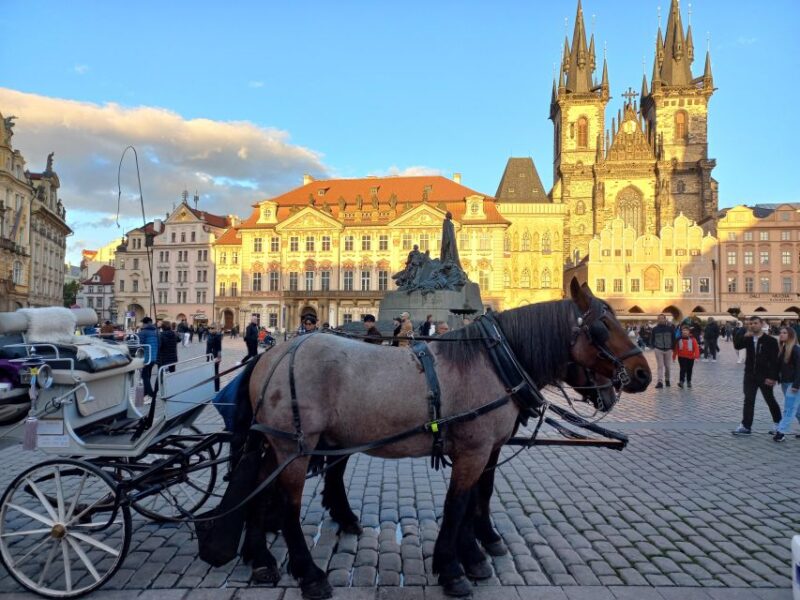
Stepping into the heart of Prague, one can almost feel the ghost of Franz Kafka lingering in the air.
This tour offers a unique opportunity to explore the places that inspired the renowned author’s haunting works. Guests will discover the locations where Kafka lived, studied, and worked, including his final resting place in the Jewish quarter.
Along the way, they’ll learn about Kafka’s life, family, and friends, and understand the historical and political context that shaped his writing.
With the 100th anniversary of Kafka’s death approaching in 2024, now is the perfect time to celebrate his enduring legacy by immersing oneself in the city that fueled his Kafkaesque imagination.
Significance of the Jewish Quarter
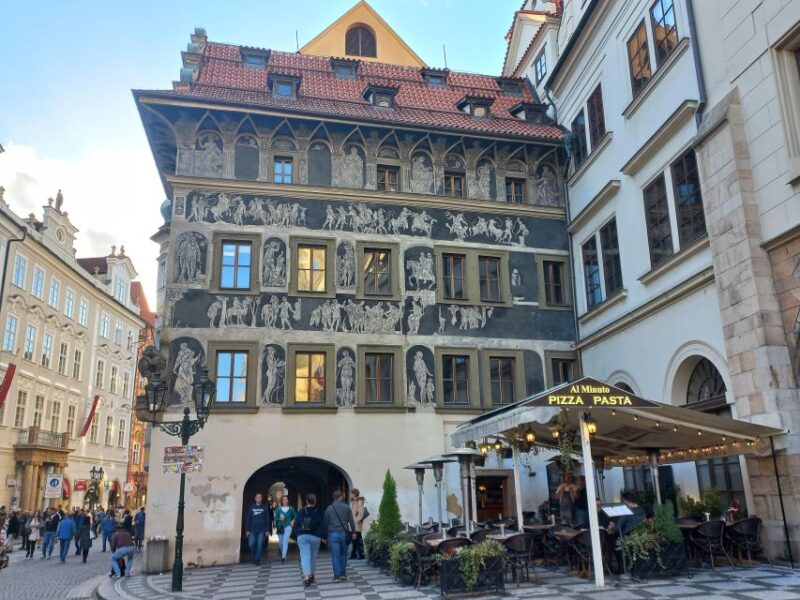
Nestled within the heart of Prague, the Jewish Quarter holds immense significance in understanding Kafka’s life and literary works. This historic neighborhood was the setting for many of Kafka’s formative experiences, shaping the distinctive worldview reflected in his iconic novels and short stories.
Visitors can explore the district’s storied synagogues, which served as both sacred spaces and sites of intellectual ferment during Kafka’s time. The quarter’s winding alleys and ancient architecture evoke the sense of confinement and disorientation that permeates much of Kafka’s writing.
More Great Tours NearbyKafka’s Literary Circle and Connections
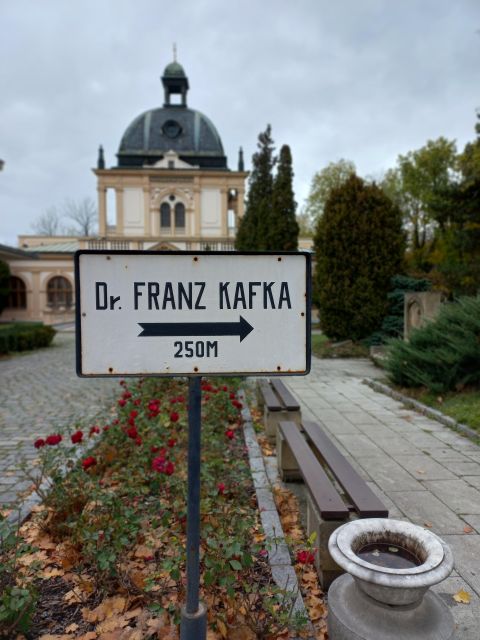
Kafka’s literary circle and connections played a pivotal role in shaping his distinctive and philosophical worldview. He was deeply influenced by the German-Jewish intellectuals and artists who gathered in Prague’s cafes, where ideas and creative inspirations were freely exchanged.
Figures like Max Brod and Felix Weltsch were part of Kafka’s inner circle, providing him with vital support and feedback on his work. Kafka also drew inspiration from Prague’s vibrant cultural scene, which ranged from the avant-garde to the traditional.
His connections and immersion in this milieu imbued his writing with a uniquely Kafkaesque blend of the absurd, the existential, and the darkly humorous.
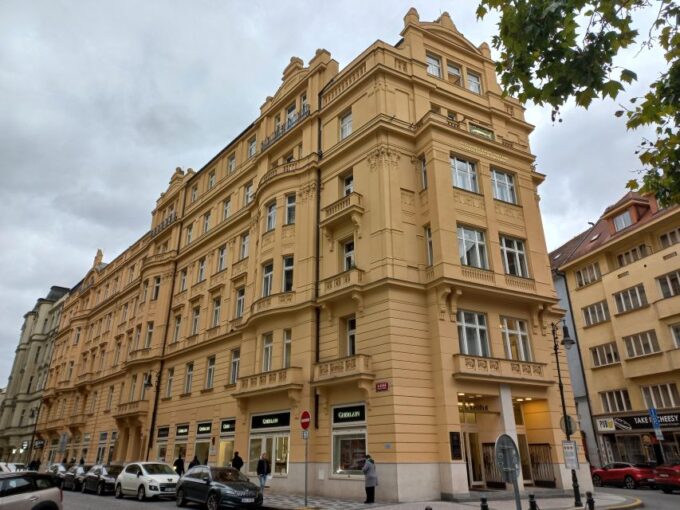
Navigating the city that inspired Franz Kafka’s unsettling yet captivating works can be a thought-provoking experience for literary enthusiasts.
By exploring the locations where Kafka lived, studied, and worked, visitors can gain a deeper understanding of the historical and political context that shaped his writings.
The guided tour offers the opportunity to visit Kafka’s grave in the Jewish quarter and learn about his life, family, friends, and literary contributions.
With language options, accessibility, and flexible cancellation policies, the tour provides a personalized and hassle-free way to take in Kafka’s Prague and commemorate the 100th anniversary of his death in 2024.
Commemorating Kafka’s Lasting Legacy
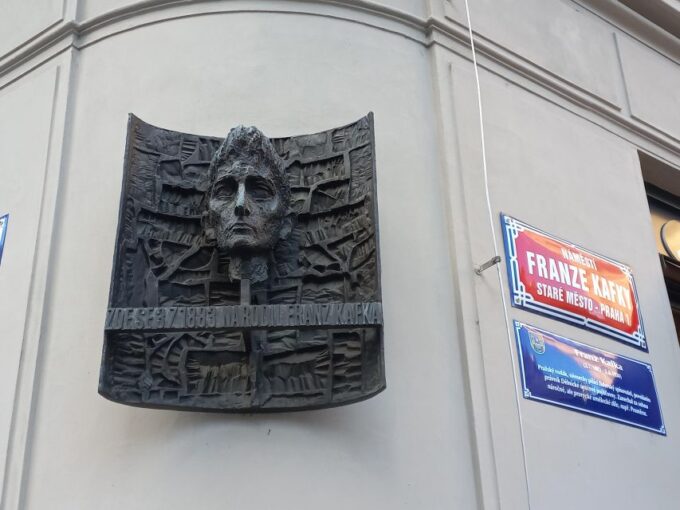
As the 100th anniversary of Franz Kafka’s death approaches in 2024, it’s an opportune time to commemorate the lasting impact of his literary genius. Kafka’s surreal and allegorical writings continue to captivate readers worldwide, exploring themes of alienation, bureaucracy, and the human condition. Through a curated tour of Kafka’s Prague haunts, visitors can enjoy the author’s life and work, uncovering the historical and political context that shaped his iconic stories. Whether exploring Kafka’s former residences, visiting his final resting place, or delving into his literary contributions, this commemorative tour offers a unique opportunity to honor one of the 20th century’s most influential writers.
| Commemorative Tour Highlights | ||||
|---|---|---|---|---|
| Retrace Kafka’s Footsteps | Explore Kafka’s Residences | Visit Kafka’s Grave | Discuss Kafka’s Life & Work | Understand Historical Context |
Planning Your Kafka-Inspired Tour
Setting out on a Kafka-inspired tour of Prague is a captivating way to take in the life and literary legacy of this celebrated author.
The tour features a guided walk through the city’s landmarks, including the locations where Kafka lived, studied, and worked.
Visitors can expect to discover:
- Kafka’s grave in the historic Jewish quarter, where they can pay their respects to the writer.
- Insights into Kafka’s personal life, relationships, and the political and social context that shaped his iconic works.
- The opportunity to explore the city’s vibrant neighborhoods and gain a deeper understanding of Kafka’s enduring influence on Prague’s cultural landscape.
Frequently Asked Questions
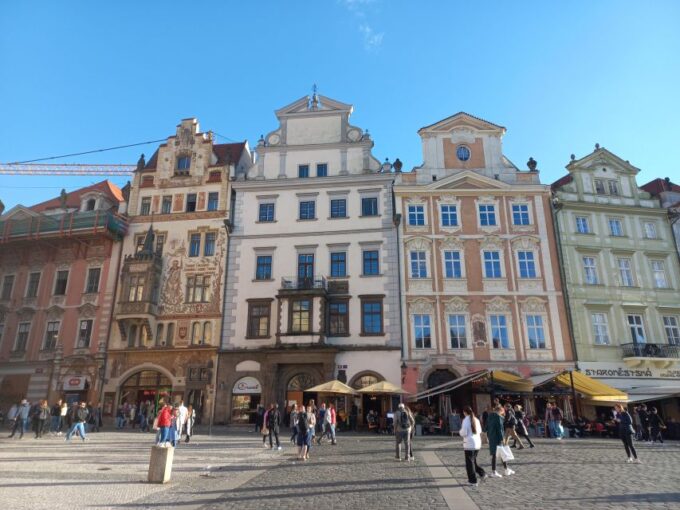
What Were Kafka’s Hobbies and Interests Outside of Writing?
Kafka had a range of interests beyond his renowned writing. He enjoyed activities like hiking, swimming, and spending time with friends. Though writing was his primary passion, he found joy in exploring the world through various hobbies and social connections.
Did Kafka Have Any Siblings, and How Did They Influence His Life?
Kafka had three sisters – Elli, Valli, and Ottla. While their relationships were complex, his sisters profoundly influenced his life and writing, providing both inspiration and heartache during Kafka’s tumultuous existence.
What Were the Major Themes and Motifs in Kafka’s Writing?
Kafka’s writings often explored themes of alienation, bureaucracy, and the absurdity of the human condition. Common motifs include transformation, the search for identity, and the struggle against impersonal forces beyond one’s control.
How Did Kafka’s Mental Health and Personal Struggles Impact His Work?
Kafka’s mental health and personal struggles deeply influenced his work, infusing it with a sense of alienation, bureaucracy, and absurdity that reflected his own existential anxieties and inner turmoil. His writing was a window into his troubled psyche.
Are There Any Lesser-Known Facts About Kafka’s Relationship With His Family?
Kafka had a complex relationship with his family, particularly his domineering father. Lesser-known facts include his mother’s influence on his writing and the tensions within his family that shaped his anxious, isolated worldview.
The Sum Up
Kafka’s Prague has become a pilgrimage site for literary enthusiasts, offering a glimpse into the captivating world that shaped his iconic works. Visitors can retrace his footsteps, enjoy the city’s labyrinthine streets, and connect with the vibrant intellectual circles that nurtured his profound and enduring literary legacy. Exploring Kafka’s Prague is a truly immersive journey, allowing one to better understand the man and the timeless brilliance of his writing.
You can check availability for your dates here:More Tour Reviews in Prague
- Prague Beer Tasting – 8 types of Czech beer included
- Prague to Berlin Private Transfer with Optional Sightseeing
- Prague Highlights in Half a Day
- Private Transfer from Prague to Cesky Krumlov, English-speaking driver
- Craft Beer Tasting in Prague
- Salzburg Private Day Tour from Prague with transfers and guide
Not for you? Here's more nearby things to do in Prague we have reviewed
- Prague Beer Tasting – 8 types of Czech beer included
- Prague to Berlin Private Transfer with Optional Sightseeing
- Prague Highlights in Half a Day
- Private Transfer from Prague to Cesky Krumlov, English-speaking driver
- Craft Beer Tasting in Prague
- Salzburg Private Day Tour from Prague with transfers and guide
- Scenic Private Transfer from Passau to Prague in a Sanitized Car
- Private Half-Day Prague Walking Tour
- Escape the City: Bohemia & Saxon Switzerland Day Trip from Prague
- Czech Traditional Folklore Evening and Prague Hidden Gems Tour
- Scenic transfer from Prague to Passau with 4 hours sightseeing in Cesky Krumlov
- Stand-Up Paddleboarding on the Vltava River in Prague
